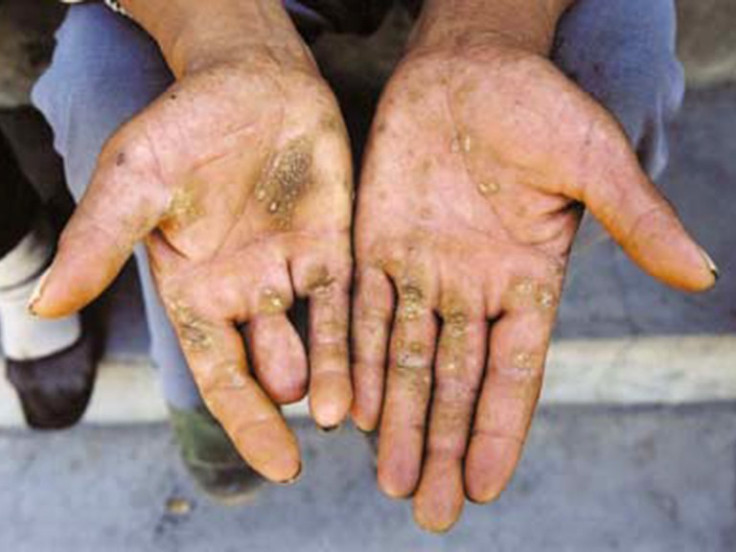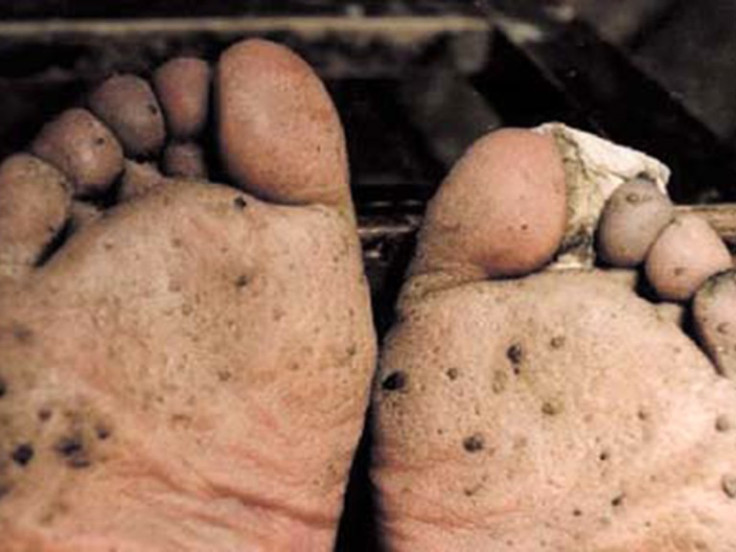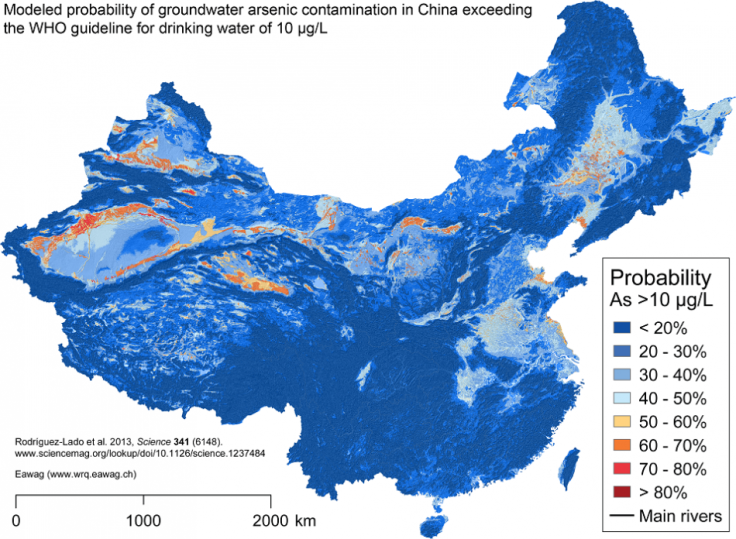China: 20 Million at Risk of Arsenic-Laden Drinking Water

Up to 20 million people across vast swathes of China are at risk from arsenic-laden drinking water, scientists have said.
Groundwater used for cooking and drinking has been contaminated with arsenic since the 1960s, and estimates suggest the number of people at risk from the water has risen steadily ever since.
Arsenic is one of the most common contaminants found in drinking water. It is tasteless and odourless, but highly toxic to humans.
If ingested over long periods, it can cause liver disorders, problems to cardiovascular and kidney function, as well as several types of cancer. It also causes hyperpigmentation of the skin and hyperkeratosis on the palms and soles.

The World Health Organisations says arsenic concentrations below 10 micrograms per litre (µg/L) are considered safe. In China, the standard guideline has only recently changed from 50 µg/L to 10 µg/L.
Researchers from the Swiss Federal Institute of Aquatic Science and Technology (Eawag) and the China Medical University assessed the risk posed to people in China by arsenic-contaminated water.
Areas identified as potentially posing a risk include the basins of the Tarim, Ejina and Heihe.
Scientists predict arsenic concentrations are above 10 µg/L in an area totalling 580,000 km2, affecting 20 million.

Geochemist Annette Johnson said that while this figure may be an over-estimation, China will remain dependent on groundwater as a source of drinking water.
"Our method permits more targeted sampling campaigns and saves time in identifying populations at risk. The Chinese authorities are adopting our maps in the national monitoring programme," she said.
Speaking to the BBC, Johnson added: "What it is very important to do is to go to the areas that are hotspots and screen those first. The chances are you will find more contaminated wells than wells that are not contaminated.
"And in the other areas, you still have to make sure you do screening for arsenic, but it is probably not such a high priority."
© Copyright IBTimes 2025. All rights reserved.






















